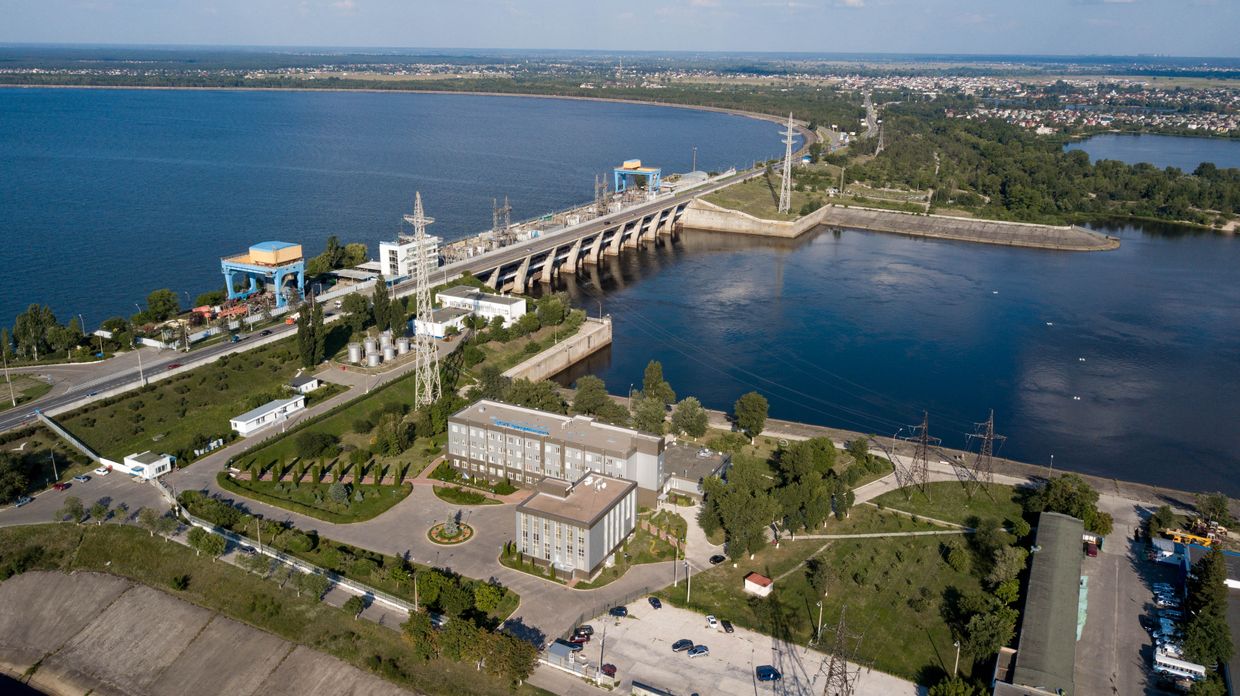MP Yaroslav Zhelezniak: Ukraine’s parliament & economy, Issue No. 42

Editor’s note: This is issue 42 of Ukrainian lawmaker Yaroslav Zhelezniak’s weekly “Ukrainian Economy in Brief” newsletter, covering events from Feb. 5-11, 2024. The digest highlights steps taken in the Ukrainian parliament related to business, economics, and international financial programs.
This is the first time it is appearing in the Kyiv Independent. The Kyiv Independent is republishing with permission.
IMF benchmarks in focus
The Committee on Finance, Tax, and Customs Policy will submit a revised alternative draft laws on the Bureau of Economic Security reform.
The Committee on Finance, Tax and Customs Policy on Feb. 12 submitted the draft law on restarting the Bureau of Economic Security which is an alternative to the Cabinet of Ministers’ draft law #10439.
The Committee’s draft law is based on the text of the draft law #10088-1 which was supported by key Ukrainian business associations, experts and anti-corruption NGOs.
The new alternative draft law was revised in cooperation with the experts from Anti-Corruption Action Center, International Development Law Organization, business associations and Ukraine's international partners.
Moreover, the Committee will submit the alternative draft law to the Cabinet of Minister's bill with amendments to the Criminal Procedure Code.
The alternative draft law aims to ensure additional protection of business interests during searches, seizure of property and other procedural actions, as well as reducing the illegal pressure of pre-trial investigation bodies and prosecutor's offices on business.

The Business Ombudsman Council of Ukraine criticized the government’s draft law on the BES reform.
Roman Waschuk, Business Ombudsman of Ukraine, spoke out against the draft law #10439 on the Bureau of Economic Security (BES) submitted by the Cabinet of Ministers.
During a podcast hosted by the Center of Economic Strategy, Mr. Waschuk criticized the provision which obliges the representatives of the Business Ombudsman of Ukraine to take part in all BES’s searches.
He claimed that the presence of the Business Ombudsman representatives takes away the Council’s right to consider the legitimacy of the search process. Moreover, the Business Ombudsman Council doesn’t even have enough employees to implement such provision.
According to Mr. Waschuk, the Business Ombudsman Council sent its negative assessment of the draft law to the Prime Minister, Justice Minister, and the Economy Ministry. However, the Cabinet of Ministers submitted its draft law #10439 with this provision anyway.
World Bank priorities
The Office of the President withdrew the draft law on financial markets from the Parliament’s agenda.
Last week, the Verkhovna Rada, Ukraine's Parliament, had only two plenary days instead of planned three. As a result, lawmakers didn't have time to consider two draft laws from the World Bank’s Development Policy Loan (DPL).
The two draft laws concern draft law #5593-d on state-owned enterprise corporate governance reform and draft law #9266 on electronic crop receipts.
The Parliament also had to consider draft law #5865 on strengthening the independence and institutional capacity of the National Securities and Stock Market Commission (NSSMC) in accordance with the International Organization of Securities Commissions (IOSCO) principles.
However, the draft law was withdrawn from the Parliament according to the demand from the Deputy Head of the Office of the President. As we reported earlier the Office of the President opposes the provision which requires to appoint the NSSMC’s members based on the results of competitive selection.

Other key economic issues
The President signed the draft laws to extend the martial law and general mobilization in Ukraine. Martial law was extended from Feb. 14 for another 90 days until May 13.
The Verkhovna Rada adopted in the first reading the new Cabinet of Minister’s draft law on mobilization.
The draft law #10449 received 243 votes (226 minimum required). The draft law was adopted in the first reading without the proposals of the Security and Defense Committee.
Lawmakers can submit their amendments until Feb. 21. Most likely the draft law will be considered and adopted in the second reading during the last week of February (Feb. 22-24).
That means that it could be signed at the beginning of March and will come into effect in a month, i.e. in April.
The Temporary Investigative Commission on Economic Security of the Verkhovna Rada of Ukraine will renew its work.
On Feb. 9 in the Parliamentary Committee on Finance, Tax and Customs Policy the First Deputy Head of the Committee Yaroslav Zhelezniak held a meeting “Where to find more money for the Ukrainian state budget."
More than 50 participants from key business associations, expert NGOs and embassies of foreign countries in Ukraine (particularly G7 members) took part in the meeting.
Problems of illegal markets and ways to solve them were discussed using concrete examples, particularly in illegal tobacco, alcohol and fuel markets.
The unsatisfactory performance of the Bureau of Economic Security (BES) and other law enforcement agencies was also a primary focus of the conversation.
Business associations and experts once again emphasized the importance of fighting the shadow economy sector, which on some markets, unfortunately, continues to grow.
In addition, the community emphasized the importance of restarting the BES and improving the work of law enforcement agencies, as well as restarting the State Customs Service.
To address all the issues Yaroslav Zhelezniak and his colleagues have already submitted to the Parliament the resolution to launch the new Temporary Investigative Commission on Economic Security.
It will continue its last year's work to solve the above-mentioned problems. It will also have additional topics in focus including the aim to increase the effectiveness of management of state property and implementation of Ukraine’s obligations within the international financial programs.












